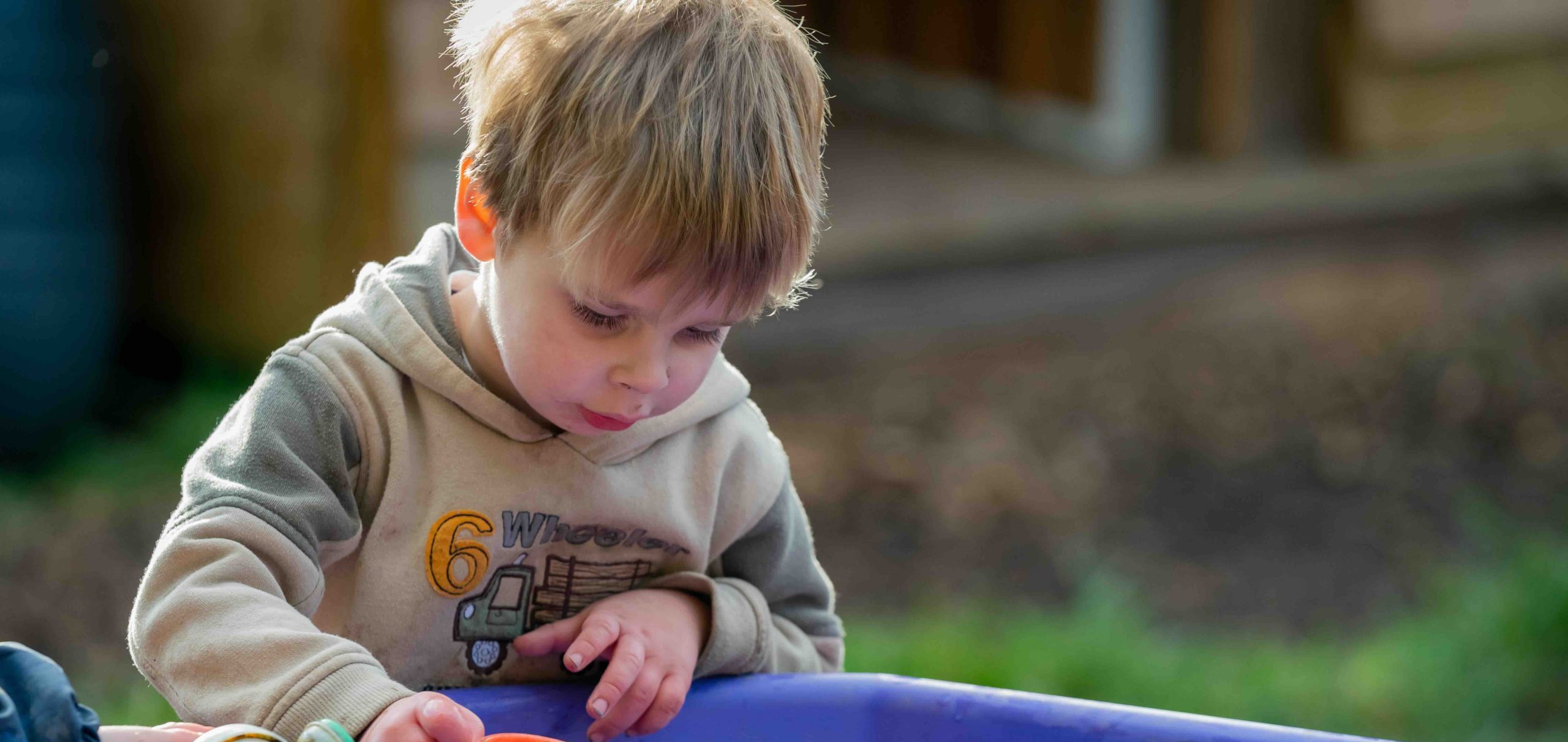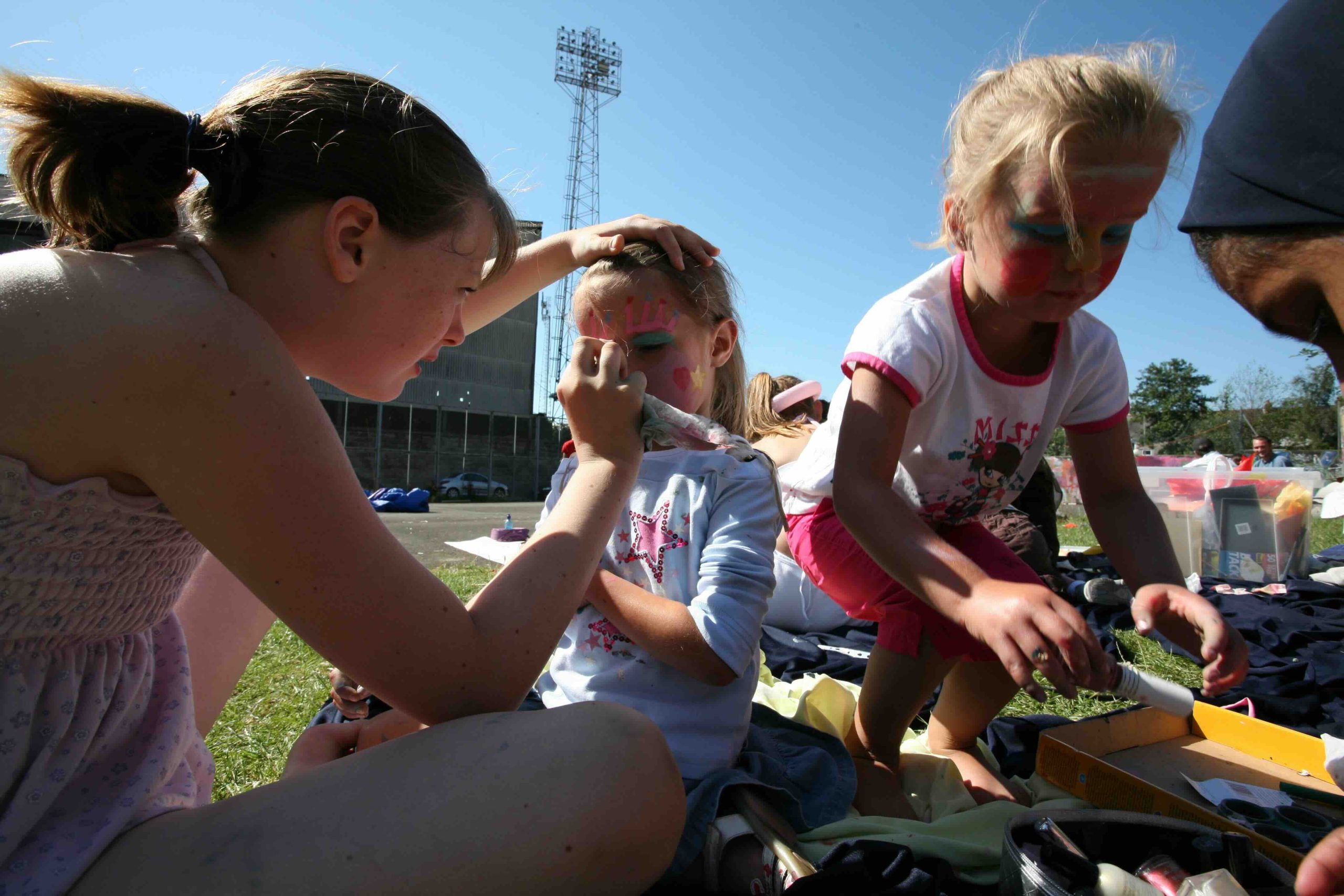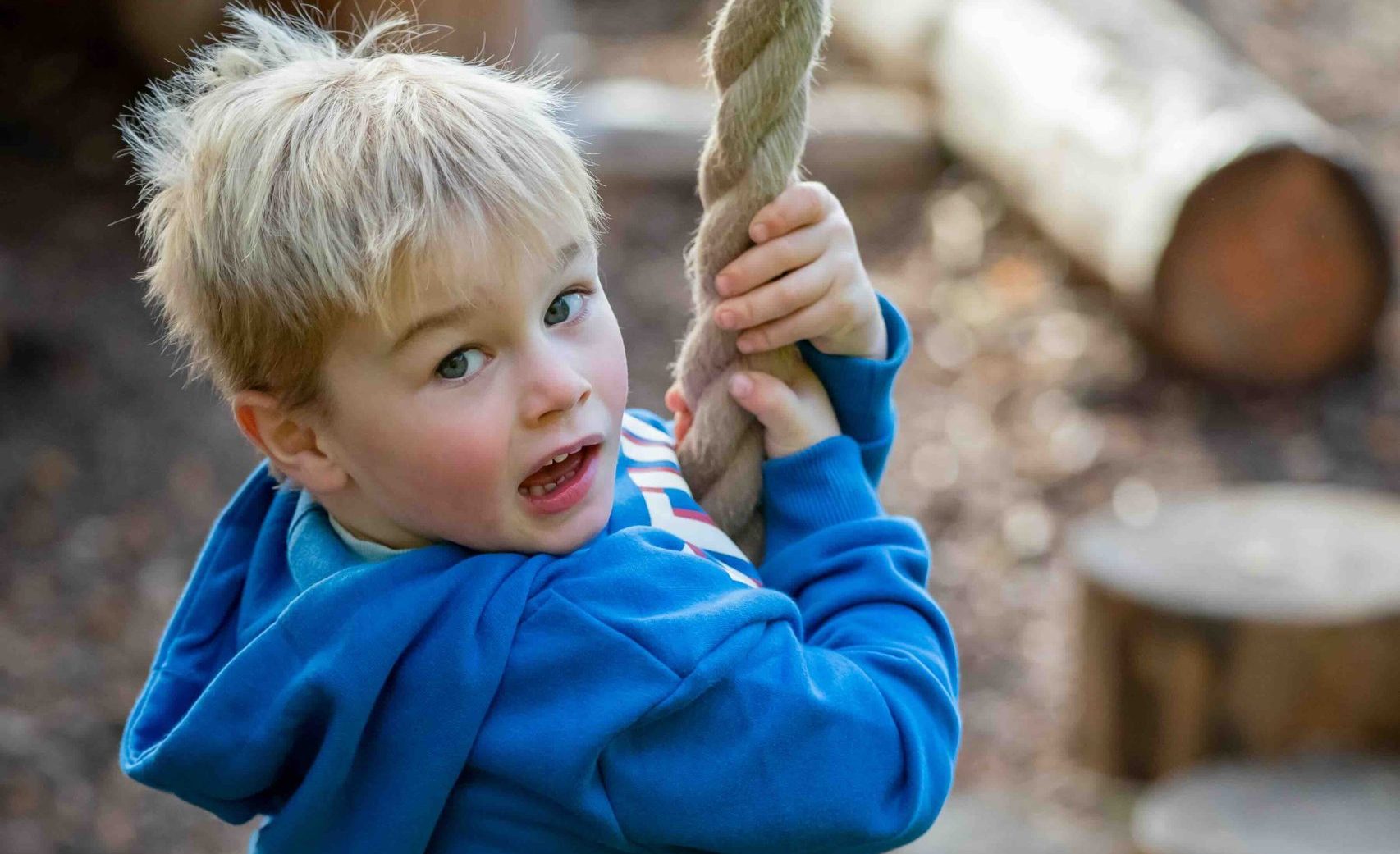Play in the Community
How to encourage play in schools and childcare
Children spend a lot of their time in school or in childcare such as a crèche, nursery or after school club. Schools and childcare should give lots of opportunities for playing throughout the day, every day.
In childcare and in the first few years of school, playing is the main way children spend their time. Schools should give children of all ages lots of opportunities to play throughout the day, every day. A playful approach is also important in the classroom.
Teenagers also need time and space to play, relax and socialise - before, during and after the school day.
Think about what opportunities your child has to play, wherever they spend time. Does your child’s school or childcare seem to be playful enough? How can you tell – what should you be looking for?
What are the signs of playful schools and childcare?
- Your child regularly comes home with tales of playtime fun and adventures.
- Your child has plenty of time for playing every day.
- Children are encouraged to play outdoors in all weathers.
- Children aren’t made to do something else before they’re allowed to play – for example, finishing homework.
- Children are involved in making any playground rules – and there aren’t too many.
- All the children are included in playing.
- The playground or outdoor space looks playful, not perfect – for example, it may look a bit messy, it may have wild areas or long grass, there may be chalk marks on the ground, it may change from time to time.
- The playground or outdoor space has things like old tyres or boxes that children can move about and make things with when they’re playing.
- The playground or outdoor space has natural things to play with like pebbles and plants.
- Playtime is never taken away as a punishment.
How can you encourage your child’s school or childcare to be more playful?
Schools and childcare usually welcome volunteers and involvement from parents and carers. If you see signs that they aren’t as playful as they could be (see the list above), then here are a few ways you can help them to be more playful.
Find out more about play
- Search the internet for pictures of good play areas
- Gather children’s thoughts and ideas
- Arrange visits to other schools and childcare to see what they do well
- Research the latest ideas about play, playgrounds and playtimes (this website has a lot of useful information)
- Find out who can offer help and advice locally.
Find ways to raise the subject of play
- Contact your school or childcare asking if you can come and talk to them about play
- Get involved with the Parent Teacher Association and raise the subject of play there
- Suggest setting up a playground or playtime improvement group
- Encourage your child to join the school council – every primary, secondary and special school in Wales is required to have one.
Be prepared to do something
- Choose some small achievable projects to do – such as building a sandpit
- Find ways to involve the children – for example, talking with them about what they would like to change in the play area
- Find out which parents have skills that would be helpful – such as fundraising, joinery, gardening
- Ask for offers of support and donations – and take advantage of them
- Make funding applications – even small amounts can help make a difference
- Make a play development plan – include short, medium and long-term goals.













